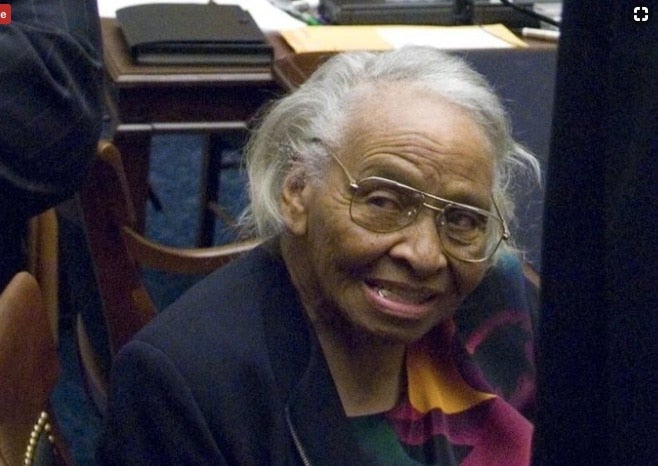Olivia Hooker, the first Black women in the U.S. Coast Guard and one of the last survivors of the 1921 Tulsa race riots, has died.
Her goddaughter, Janis Porter, told the
Associated Press that Hooker died Wednesday at their home in White Plains, New York. She didn’t provide a cause of death.
Hooker was 103.
Before her death, she was considered the
likely last survivor of the deadly 1921 Tulsa race riots. Hooker was only six years old on May 31, 1921, when a white mob entered her black middle-class neighborhood of Greenwood in Tulsa and terrorized the community for the next 24 hours.
Hooker’s mother hid her and her three siblings under the dining room table when a group of white men entered her home, she told
Radio Diaries in a radio series called “Last Witness”, which features portraits of the last surviving witnesses to major historical events.
“It was a horrifying thing for a little girl who’s only six years old,” she said in the interview that aired in June 2018. “Trying to remember to keep quiet, so they wouldn’t know we were there.”
The root of the unrest was the arrest of Dick Rowland, a young black man
accused of assaulting a young white woman in an elevator. News quickly spread that a white mob was rising up and coming to lynch him. The mob was met by an armed group of African-American men, many of whom were World War I veterans.
According to
NPR, an armed standoff ensued, and “the white mobs destroyed more than 1,000 homes and businesses. They set fire to schools, churches, libraries, and movie theaters, leveling entire city blocks.” Up to an estimated 300 people were killed, though the exact death toll is unknown.
For Hooker, she witnessed them tear down items in her home, as well as the complete destruction of her father’s clothing business. Her family picked up soon after and moved to Topeka, Kan. as their once thriving neighborhood was now lost.
“It was a neighborhood where you could be treated with respect,” Hooker says of the neighborhood many once called “Black Wallstreet”.
Hooker went on to become the first African-American woman to join the U.S. Coast Guard. Her work involved preparing discharges for guardsmen returning from the war and rejoining civilian life, according to the Coast Guard.
“She was a national treasure, she was a very special lady,” Coast Guard spokesman Barry Lane said.
Hooker earned a master’s degree from Columbia University and a Ph.D. in psychology from the University of Rochester. She later worked as a professor at Fordham University in New York, according to the Coast Guard.
Hooker had no surviving relatives.


